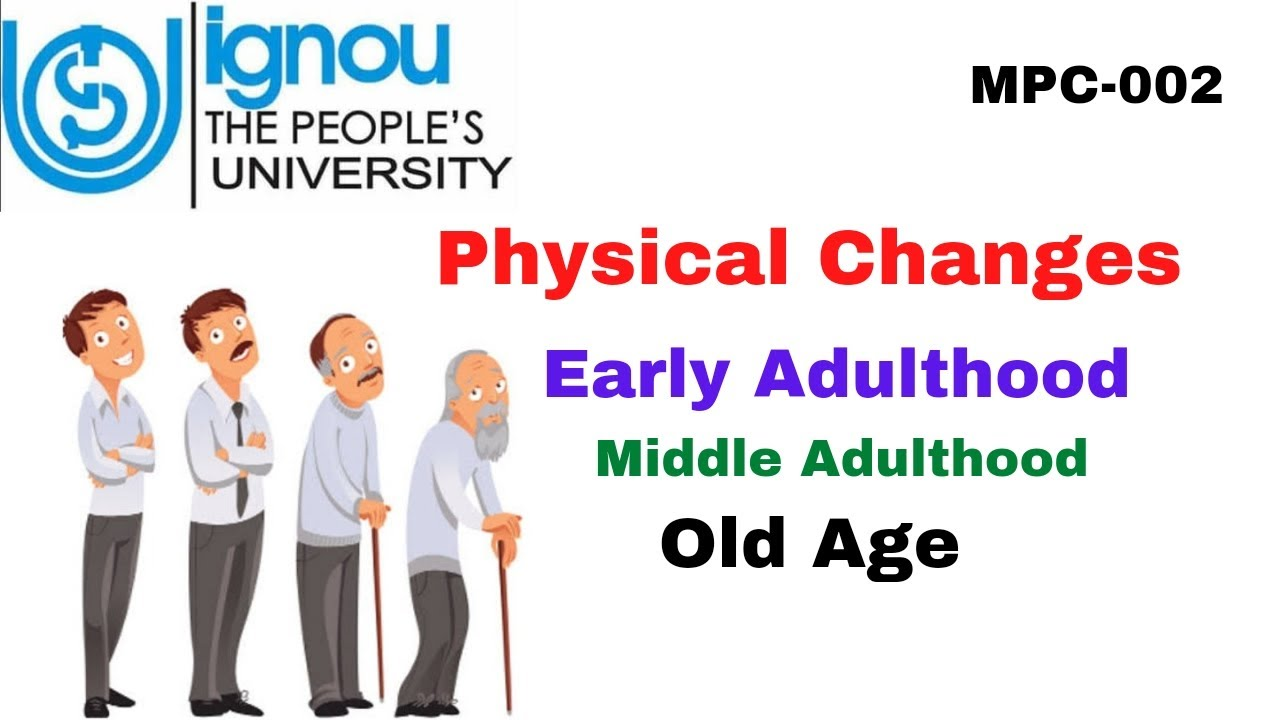Change in adulthood is an inevitable part of our lives, driving personal growth and self-improvement at various stages. According to the Harvard Study on Adult Development, the journey of psychological development is ongoing throughout our adult years, challenging the belief that we become static after a certain age. Embracing change can be daunting, yet it often leads to significant breakthroughs in how we understand ourselves and engage with the world around us. As we navigate through different life experiences, the ability to adapt not only brings about personal fulfillment but also enhances our relationships with others. Whether we’re facing disillusionment or seeking new opportunities, recognizing and accepting change in adulthood is crucial for our happiness and well-being.
Transitioning into adulthood marks a pivotal time when individuals encounter substantial transformations, commonly referred to as personal evolution. This phase is characterized by shifts in identity, relationships, and perspectives, underlining the importance of adapting to new realities. Researchers, such as those involved in the Harvard Study on Adult Development, highlight the complexities of psychological maturation, emphasizing the diverse responses people have toward periods of adjustment. While some might resist these shifts, the journey of self-discovery often unfolds through embracing transitions. Ultimately, acknowledging the necessity of growth and adjustment during this stage enhances our capacity for fulfillment and deeper connections with the world.
Understanding Change in Adulthood
Change is an inherent part of the human experience, especially in adulthood. The idea that we cease to evolve after our formative years is a common misconception. In fact, the Harvard Study on Adult Development has continuously highlighted that our psychological development does not plateau during early adulthood; instead, it persists and often accelerates as we encounter various life stages. Changes in relationships, career paths, and personal responsibilities induce significant transformations, revealing that adulthood is a dynamic period marked by both intentional self-improvement and unexpected evolutions.
The importance of embracing change in adulthood cannot be overstated. It’s during this time that we can actively pursue personal growth that aligns with our evolving values and circumstances. Studies indicate that those who embrace change are more likely to experience enhanced well-being and satisfaction in their lives. This embrace of transformation feeds into a larger narrative about lifelong learning and self-improvement, suggesting that we are never truly ‘set’ in our ways. Engaging in self-reflection and seeking opportunities for growth not only benefits our personal happiness but also our relationships with others.
Embracing Change for Personal Growth
Embracing change is fundamental for personal growth. The insights from the Harvard Study on Adult Development affirm that those who approach change with an open mindset are more likely to thrive. This is evident in how individuals respond to life’s challenges—those who view disillusionment as an opportunity for growth often come out the other side with a deeper understanding of themselves and greater resilience. These moments of trial can serve as catalysts for self-improvement, pushing us to redefine our goals, values, and even our narratives.
Furthermore, this embrace of change ties into the broader societal context of psychological development. In a world that often feels stagnated by routine, actively seeking change can enhance our emotional intelligence and adaptability. It’s about learning to let go of the past and actively shaping our futures. Encouragingly, psychological research points to the power of positive experiences in recalibrating our biases and perceptions, showcasing that with each step towards embracing change, we foster not only our own improvement but contribute positively to our communities.
The Dynamics of Psychological Development in Adulthood
Psychological development in adulthood is a multifaceted journey shaped by various life experiences and social contexts. According to multiple studies, including insights from the Harvard team, our beliefs, biases, and emotional responses evolve significantly over time. This journey of change facilitates deeper connections with others and greater empathetic understanding, highlighting the role of relationships in our development as adults. The more we engage with diverse perspectives, the more we challenge our implicit biases and expand our capacity for compassion and growth.
Moreover, the complexities of adult psychological development emphasize that no two individuals experience change in the same way. Factors such as cultural background, personal history, and support systems play crucial roles in how each person navigates their life’s transitions. As we mature, understanding these dynamics can empower us to make conscious decisions about how we want to grow, reinforcing the notion that personal growth and self-improvement are lifelong pursuits that require constant engagement and reflection.
Resisting Change: The Fear of the Unknown
Despite the inevitability of change, many individuals find themselves resisting it due to fear of the unknown. This fear can lead to stagnation and missed opportunities for personal growth. The psychology behind this resistance is complex, often tied to deeply ingrained beliefs about identity and self-worth. Understanding that fear is a natural response can help individuals recognize these feelings and work through them methodically. Engaging in discussions about change, like those found in the Harvard Study, can provide clarity and help demystify the process, allowing for a healthier relationship with change.
Additionally, this resistance can manifest as an avoidance of self-improvement or self-exploration. When individuals cling to familiar patterns, they may inadvertently limit their potential for happiness and success. By fostering a culture that celebrates change and its accompanying uncertainties, we encourage higher levels of psychological resilience. Conversations that normalize these experiences are essential, helping to shift perspectives toward viewing change as not only a challenge but a door to new possibilities.
The Role of Disillusionment in Personal Development
Disillusionment, while often perceived negatively, can act as a powerful catalyst for personal development. Significant life changes, such as a career shift or the end of a relationship, can lead to feelings of disillusionment that, if navigated effectively, prompt deeper self-reflection and growth. This process, as highlighted by the experts in the Harvard Study, reveals that how we respond to disillusionment significantly shapes our journey of self-improvement. Instead of succumbing to cynicism, individuals can take a step back to reassess their values and goals, leading to a renewed sense of purpose.
Furthermore, developing a nuanced understanding of disillusionment’s role in our lives can empower us to dismantle the biases associated with it. By embracing the discomfort that comes from disillusionment, we lay the groundwork for transformative change. It teaches us that setbacks often pave the way for valuable insights, driving us toward new paths for engagement and fulfillment. This perspective aligns with the broader theme of psychological development, showcasing the importance of resilience and adaptability in our growth.
Cultivating Resilience Through Change
Cultivating resilience is essential in navigating the inevitable changes of adulthood. Research from the Harvard Study on Adult Development emphasizes that resilience is not merely about enduring hard times but about bouncing back stronger and wiser. This ability to adapt to change often hinges on our mindset. By viewing challenges as opportunities for learning rather than obstacles, we can foster a resilient spirit that thrives in the face of uncertainty.
In practice, developing resilience involves actively seeking experiences that push us outside our comfort zones. Whether through new professional opportunities or personal challenges, each step taken towards embracing change strengthens our capacity for growth. Additionally, building supportive relationships can enhance this resilience, as social networks provide the encouragement and guidance needed during transformative phases of life. By prioritizing resilience, we not only improve our own lives but also model adaptability and strength for others in our communities.
The Impact of Changes in Relationships
Relationships, often seen as mirrors of our personal growth journey, can greatly impact how we adapt to change in adulthood. As we evolve, so too do our connections with friends, partners, and colleagues. The dynamics of change in relationships can illuminate aspects of ourselves that require growth, highlighting the importance of communication and adaptability in fostering healthy interactions. Engaging authentically with others can lead to invaluable insights about our biases and assumptions, making relational change an essential component of overall psychological development.
Moreover, as relationships shift, they provide us with opportunities for self-improvement and reflection. The Harvard Study suggests that the quality of our relationships is closely linked to our overall happiness. Meaningful connections can serve as both a buffer and a encouragement during times of change, helping us navigate life’s transitions with greater ease. By prioritizing the cultivation of positive relationships, we not only enhance our well-being but also contribute to a collective growth experience within our communities.
Personal Growth: The Lifelong Journey
Personal growth is not merely a phase but a lifelong journey that involves continuous learning and adaptation. The expert discussions from the Harvard Study emphasize that each stage of adulthood presents unique opportunities for self-improvement and reflection. Engaging in this journey requires conscious effort and occasional discomfort, but the rewards of self-discovery and emotional maturity are profound. Furthermore, as we embrace this journey, we cultivate a greater understanding of what truly brings happiness and fulfillment, aligning our actions with our evolving values.
Additionally, taking proactive steps toward personal growth can have ripple effects in various life domains. Whether through education, new experiences, or engaging with diverse viewpoints, each action taken towards self-improvement enriches our lives and the lives of those around us. By fostering an environment that encourages personal growth, we contribute to a culture that values continuous evolution, aligning ourselves with the inherent changes of the human experience. Ultimately, the commitment to lifelong growth enhances our resilience, adaptability, and overall well-being.
The Importance of Self-Reflection in Change
Self-reflection stands as a foundational element in navigating the complexities of change in adulthood. As individuals strive for personal growth, engaging in regular self-reflection allows us to gain insights into our motives, biases, and behaviors, fostering a deeper understanding of ourselves. This introspection is vital, especially when confronting disillusionment or fear of the unknown, as it equips us with clarity and direction for our journeys. The Harvard Study reinforces that a significant part of psychological development is understanding how our past experiences influence our current decisions and future aspirations.
Moreover, self-reflection can also serve as a powerful tool for cultivating empathy and compassion towards others. By recognizing our own flaws and biases, we become more open to understanding the experiences of others, which further enriches our relationships and supports a culture of acceptance and personal growth. This process of looking inward not only enhances our individual well-being but creates a positive, transformative environment where growth is embraced, and the complexities of change are navigated with awareness and strength.
Frequently Asked Questions
What are some common changes in adulthood related to personal growth?
Adulthood is a dynamic phase that brings a myriad of changes in personal growth, including career transitions, shifts in social relationships, and evolving values. These changes often lead to self-improvement and deeper self-awareness as individuals navigate responsibilities and priorities in life.
How does the Harvard Study on Adult Development explain changes in adulthood?
The Harvard Study on Adult Development emphasizes that personal development continues throughout adulthood, countering the myth that growth halts after a certain age. The study reveals that ongoing psychological development influences happiness, relationships, and overall life satisfaction, highlighting that embracing change is crucial for well-being.
Why is embracing change important for psychological development in adulthood?
Embracing change is vital for psychological development as it fosters resilience and adaptability. Individuals who welcome change often experience enhanced self-improvement and a richer understanding of their capabilities, ultimately leading to greater fulfillment in various aspects of life.
What role does self-improvement play in navigating change during adulthood?
Self-improvement plays a significant role in navigating change during adulthood by encouraging individuals to seek new skills, perspectives, and experiences. This proactive approach to personal growth not only enhances one’s quality of life but also builds confidence to face future challenges.
Can individuals change their implicit biases as they mature into adulthood?
Yes, research indicates that individuals can change their implicit biases as they mature. This evolution is influenced by new experiences, education, and self-reflection, particularly as adults engage with diverse communities and perspectives, fostering psychological development.
How can disillusionment affect change in adulthood?
Disillusionment can serve as a catalyst for change in adulthood. While it may initially lead to withdrawal or cynicism, individuals can choose to respond positively by developing a more nuanced understanding of themselves and their environment, ultimately facilitating personal growth.
What strategies can help individuals embrace change during adulthood?
To effectively embrace change during adulthood, individuals can adopt strategies such as setting achievable personal growth goals, seeking support from mentors or peers, and cultivating a mindset that views challenges as opportunities for self-improvement and psychological development.
How does change impact relationships in adulthood?
Change profoundly impacts relationships in adulthood, as individuals evolve in their personal growth journeys. This transformation can lead to strengthened connections with others who share similar values, while also necessitating reevaluation or adjustment in relationships that no longer align with one’s evolving self.
Is it ever too late for personal growth and change in adulthood?
It is never too late for personal growth and change in adulthood. Many studies, including the Harvard Study on Adult Development, demonstrate that individuals can experience significant transformations and improve their lives at any age by embracing new challenges and learning opportunities.
How does cultural context influence an adult’s ability to embrace change?
Cultural context plays a crucial role in influencing an adult’s ability to embrace change. Factors such as societal norms, family expectations, and community values can either encourage personal growth and self-improvement or create barriers to change, highlighting the importance of context in psychological development.
| Key Point | Explanation |
|---|---|
| Change is Inevitable | Change happens whether we actively pursue it or not; it’s a constant aspect of human existence. |
| Resistance to Change | Resisting change can lead to suffering; accepting and embracing change fosters growth. |
| Impact of Disillusionment | Disillusionment can lead to both bitterness or a broader understanding of reality, affecting personal growth. |
| Agency in Change | While biases and circumstances can influence change, individuals possess the agency to effect change in their lives. |
| Cultural Perceptions of Change | Cultural narratives can shape our beliefs about the potential for change, affecting individuals’ willingness to adapt. |
Summary
Change in adulthood is a fundamental aspect of personal development and growth. As individuals navigate through the challenges and experiences of their lives, they will encounter various opportunities for growth that are intrinsic to change. Understanding that change is not only inevitable but also necessary for happiness helps individuals embrace their evolution as they move through different life stages. Engaging with change positively can lead to enriching life experiences and a deeper appreciation of oneself and the world.



